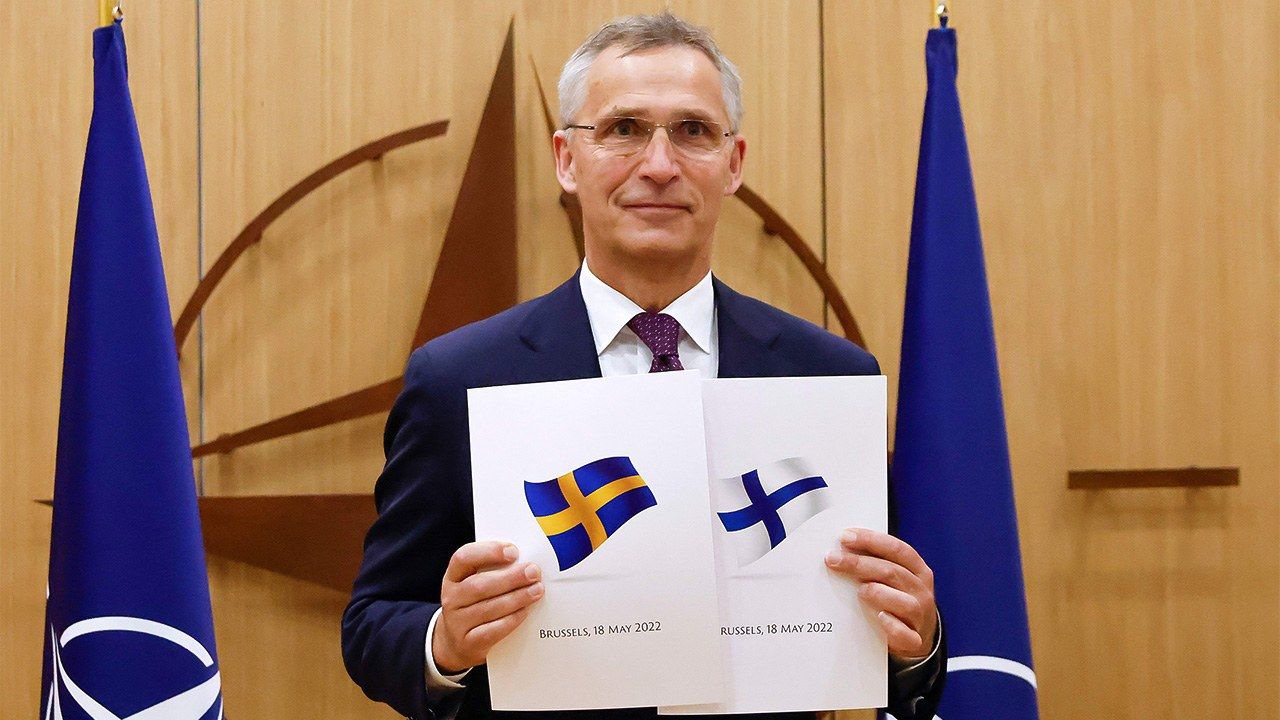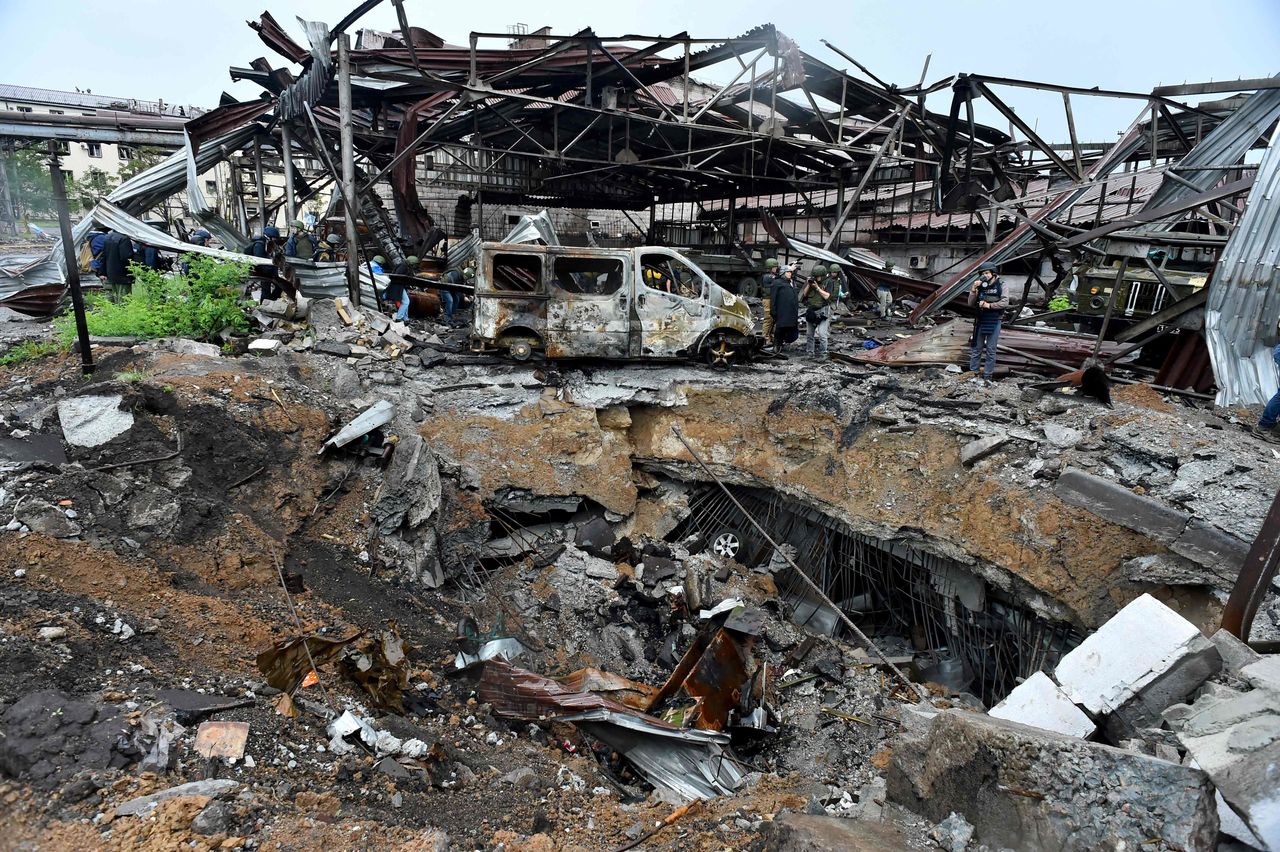
The Ukraine War’s Lesson: The Need for a “Pacific NATO”
Politics Society- English
- 日本語
- 简体字
- 繁體字
- Français
- Español
- العربية
- Русский
From Kokugaku to International Politics
INTERVIEWER From 2010 to 2011 you spent a year studying language at Waseda University, and then you returned to Ukraine. Subsequently, you began studies at Kyoto University in 2013, where you focused on Motoori Norinaga. What was it about Japan that interested you?
ANDRII GURENKO Since I was a child I enjoyed reading books about world history, and I had the impression that Japan is a country that has a unique history. There was a period of time during the Warring States period [1467–1568] when there were horrific wars, but then there was the long period of Edo-period isolation. In the twentieth century came World War II, defeat in which was so costly for Japan. This was then followed by a period of rapid development. This history of wild swings and fluctuations was attractive to me.
I studied Norinaga because I thought that in order to know Japan I would need an understanding of Shintō, which is the root of Japan. My studies of the spirit of Shintō, which pulsates throughout Norinaga’s thought, have been extremely useful in understanding the Japanese people even today. One of the reasons I chose Kyoto University was the fact that it is geographically close to Ise Jingū and Izumo Taisha, both of which are sacred locations in Shintō.
INTERVIEWER In 2016 you wrote “What Japan needs to learn from the situation in Ukraine: What is required to build real peace?” and won the Award for Excellence in the Student Essay division in an essay contest sponsored by the APA Japan Revival Foundation. Since then, you have moved on to studies in international politics, an endeavor that you are still engaged in. What lies behind this drastic shift?
GURENKO The impetus was the 2014 annexation of Crimea by Russia. This led me to think about what I could do. One thing would be to communicate Ukraine’s position. I thought that I needed to repudiate Russian propaganda and point out that Ukraine was an outright victim. Another impetus was that I wanted people to consider what conclusions the Japanese people could draw from the lessons we learned in Ukraine.
If I returned to Ukraine, I would be nothing more than one individual who was well informed about circumstances in Europe. However, if I were in Japan, I could communicate to the Japanese people that Russian President Vladimir Putin is an extremely dangerous man. I felt that that was my mission. At the time, Japanese people—Prime Minister Abe Shinzō included—did not have a clear understanding of what Putin really was, which I felt was a dangerous situation. I submitted my essay to the contest because I had a strong desire to provide advice that would help Japan avoid the same fate as Ukraine. I continued my activities as a scholar of international politics in Japan because I wanted to contribute to Japanese security and international relations.
INTERVIEWER After embarking on your career as a scholar of international politics, you published four books in succession, beginning with the 2019 Pūchin gensō [Putin’s Fantasy]. One of those—NATO no kyōkun [Lessons from NATO], which was published in May 2021—was filled with extremely interesting suggestions that seemed to almost foresee the Russian invasion of Ukraine in February this year.
GURENKO The main theme of Lessons from NATO was the importance of collective security. I used a variety of actual examples of countries that had been invaded by the former Soviet Union and Russia to delve deeply into the issue of how to derive maximum effectiveness out of collective security. The reason I wanted to write that book was that I had a sense that the domestic circumstances in Ukraine prior to the annexation of Crimea by Russia and the domestic circumstances in Japan were quite similar, and so I decided to use NATO as a theme that could be used to consider how Japan could avoid a fate similar to that of Ukraine.
The Importance of NATO
INTERVIEWER Why did you choose NATO as your theme?
GURENKO One of the basic principles of NATO is the idea that if one member nation is subjected to a military attack, it is considered an attack on all the member nations, and NATO as a whole then counterattacks. This is the greatest form of deterrence, and so NATO member nations would not suffer attack even by a brutal expansionist nation such as Russia.
For example, the three Baltic nations that share borders with Russia, Estonia, Latvia, and Lithuania, could easily be occupied by Russia considering the differences in military power. Indeed, many Russians live in each of these three countries. The reason that Russia makes no attempt to invade these countries in spite of the fact that the perfect conditions for an invasion exist is that they are NATO member nations. During the seventy-three-year history of NATO, no member nation has ever been invaded militarily. In fact, the invasion of Ukraine makes it clear that nations that are not NATO members are subject to invasion by Russia. The announcements by Finland and Sweden—two countries that have maintained their neutrality—that they have applied for NATO membership was instigated by the heightened sense of dread that they would be unable to protect themselves against the Russian threat as long as they remained outside the protection of NATO.
INTERVIEWER NATO is a multinational collective security organization, but among the many global security organizations there are also collective security organizations that include members that are hostile to each other, such as the United Nations, as well as cooperative security organizations such as ARF, the ASEAN Regional Forum, that advocate dialogue and the building of trust. Do you believe that such organizations are limited?
GURENKO It may be accurate to say that in actual practice they are not functioning. In an extreme sense, the UN is an organization that was created by the victors of World War II for the purpose of preventing war from breaking out among themselves. But it does not function as an organization that maintains world peace or that brings conflicts to a peaceful solution. It has no means by which it can stop the permanent members of the Security Council from engaging in war against another country. Until the UN is remade into an organization that is more effective, one should not expect much of it.
INTERVIEWER What do you think of the long-term Japan-US alliance, which is as firm as NATO?
GURENKO The Japan-US alliance is functioning. In terms of protecting member nations using military strength, it is similar to NATO. However, its drawback is the fact that Japan is not obligated to protect the United States, which means that Japan and the United States are not in a mutually beneficial relationship. This needs to be corrected. In any case, maintaining peace will be the weakness of any framework that is not accompanied by military strength.
There is a need for a framework that includes military strength against any country that would ignore international law.
The Danger of Taking Peace for Granted
INTERVIEWER You have pointed out that prior to the invasion both Ukraine and Japan took peace for granted. But Japan suffered enormous losses in World War II, and public opinion in Japan remains sharply divided over the issues of increased military might and deterrence. Can this be changed through democratic means?
GURENKO It can be done by correctly understanding the lesson of Ukraine. Until the 2014 annexation of Crimea, Ukraine followed a path that was very close to nonmilitary neutrality. While Ukraine had a military force, it had become weakened after repeated reductions in size. After its independence from the former Soviet Union, it abandoned its nuclear weapons and every one of its subsequent leaders repeated the declaration that Ukraine is a peaceful, neutral country. Then, in spite of twenty-three years of peace diplomacy, it was invaded by Russia. Although Ukraine appealed to the international community that it is a pacifist country, this was meaningless. In the case of Japan as well, no matter how much it insists that it is antiwar and that it loves peace, if a country were intent on invading it, that invasion would take place. Unfortunately, this is the cold, hard reality of the situation.

A destroyed industrial facility in Mariupol, southeastern Ukraine, photographed on May 18, 2022. (© AFP/Jiji)
INTERVIEWER What can be done to ensure this doesn’t happen?
GURENKO Politicians need to appeal more clearly to public opinion. Japanese politicians say that the security environment has become increasingly dangerous, but they also tend to say things like “but remain calm” and “everything will be all right” in order to avoid aggravating the situation. As a result, the Japanese public thinks “well, the politicians say everything is all right, so I suppose the status quo is fine.” Politicians should be more assertive and say things like “China and Russia may invade Japan” or “we need to take prepare for any threat.”
If, rather than critics and scholars, it was Diet members—in other words, those who were chosen by and represent the public—who said these kinds of things, then the media would act as well. If a wider debate were sparked as a result, this would likely lead to increased awareness of the issue among the general public.
Advocating the Formation of JAUKUS
INTERVIEWER In Lessons from NATO you write “What Japan needs now is a doubled defense budget and remilitarization.” Specifically, what are you referring to?
GURENKO Japan’s biggest threat is China. The effort to strengthen Japan’s defense capabilities is showing more movement than in the past, but it is clearly behind the advances being made by China in this area. Defense capabilities depend upon there being an enemy, and so Japan needs to aim for the ability to repel an attack by China. In order to play a part in world security as a global economic power, Japan will eventually need nuclear armaments. Naturally, opposition to nuclear weapons remains deeply rooted in Japan, and the international community would not be pleased at an increase in the number of nuclear-capable countries. But Japan should gradually resolve these issues. The first task is revising the three nonnuclear principles—the country’s pledge not to possess, produce, or allow the introduction of nuclear weapons on its territory. If it were difficult for Japan to arm itself with nuclear weapons quickly, then another option would be the adoption of nuclear sharing in a way that is appropriate to both the United States and Japan.
INTERVIEWER In your books you advocate the creation of a new military alliance in the Pacific region using a similar method as NATO and the “creation of an enormous global military alliance through consolidation with NATO” to ensure a stable global order. Specifically, what do you think would be a desirable security framework to aim for?
GURENKO Europe has become peaceful thanks to NATO. For Asia to Chinese expansionism, a Pacific version of NATO consisting of democratic nations needs to be created. The sudden creation of a multinational alliance would be fraught with major difficulties, as ASEAN—which failed to take on a leadership role due to the overly complex interests of the member nations—has made so clear. What I would like to propose is the inclusion of Japan in AUKUS, the agreement signed by Australia, Britain, and the United States in September 2021. Originally, AUKUS was publicly stated as a framework to allow Washington and London to provide Australia with technical assistance when the latter introduced nuclear submarines into its fleet. But it is a de facto military alliance designed to counter China and Russia.
Prompted by the invasion of Ukraine, the United States has begun examining increasing the number of participating nations, and Japan is included among the candidates. First, either Japan alone should be added to AUKUS to form JAUKUS, or it should be brought into AUKUS along with New Zealand and Canada. Next, India, Mexico, and the countries of the Trans-Pacific Partnership would be added to the member nations. This would create a collective security organization in the Pacific region with a high degree of deterrent capability, forming what could be called the Trans-Pacific Treaty Organization. While this may take time, if the TPTO—an expanded version of AUKUS—and NATO were to link and form a global-scale collective security organization, the world might be freed from the threat of invasion by aggressive autocracies.
(Originally published in Japanese. Banner photo: NATO Secretary General Jens Stoltenberg displaying the applications for NATO membership submitted by Sweden and Finland in Brussels, Belgium, on May 18, 2022. © AFP/Jiji.)
